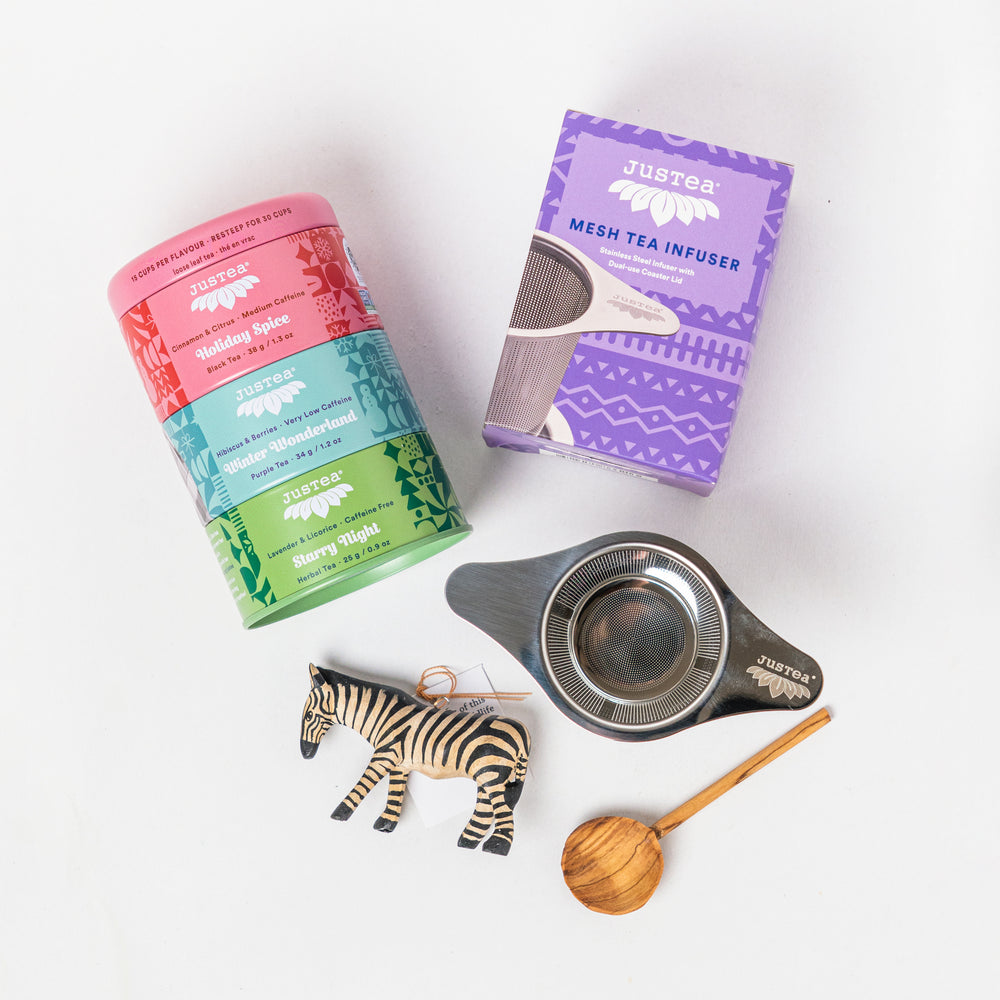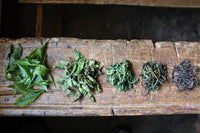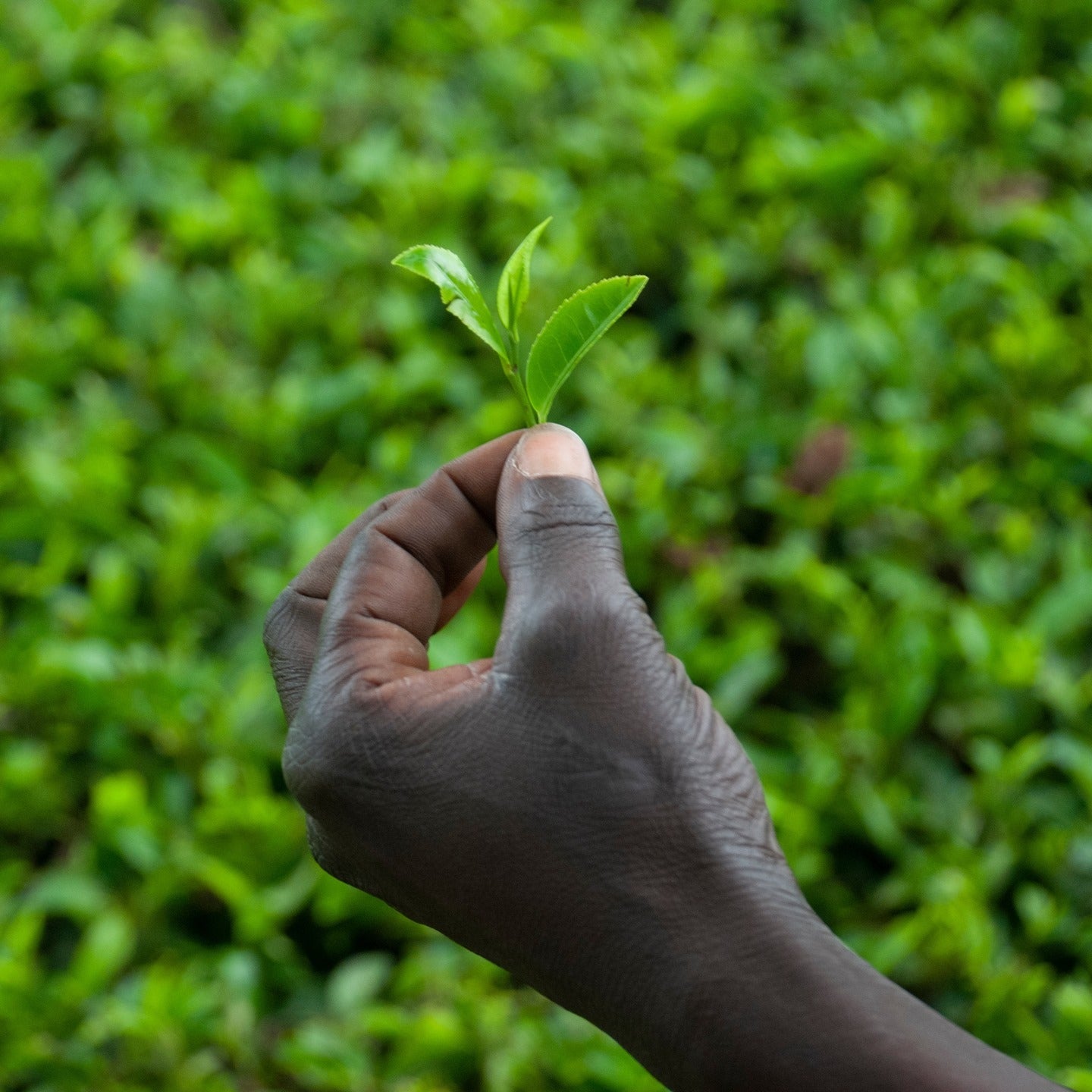
Hello!
JusTea offers the first and only farmer-direct tea from Kenya. If you like this blog post, check out the rest of our website.
Recent posts
-

-
 Explaining the Tea Making Process: How 7 Different Types of Tea are MadeBy Paul BainJuly 29, 2022
Explaining the Tea Making Process: How 7 Different Types of Tea are MadeBy Paul BainJuly 29, 2022

The History of Tea
By Paul Bain
Tea is an integral part of the human experience, from a ceremonial, culinary, and health perspective. But do you know the history of tea? For example, where did tea originate? When was tea invented? Keep reading to learn about the origin of tea, starting with what country invented tea all the way to an innovative new tea that is changing the story.
Let’s Go Back to the Origin of Tea
Let’s look back at the history of tea- or should we say tea-story! First, what is tea? Simply put, it’s a drink you make by steeping leaves and leaf buds of the tea plant (or herbs in the case of herbal tea) in hot water.
You probably already know that tea was discovered in Asia, where much of the world’s tea supply still comes from today. But what country invented tea and when? Read on to find out.
The World’s First Cup of Tea: What Country Invented Tea?
Tea was not so much invented as discovered, like many wonderful things are, by accident. The tea plant, Camellia sinensis, was found in China thousands of years ago. As the story goes, the Chinese emperor Shen Nung was relaxing under a tree when some leaves blew into the drinking water his servant was boiling. He supposedly liked the taste and effect the accidental concoction had on him, and so tea was born.
When was Tea Invented?
Herbal tea and other teas have been consumed by humans for centuries, both for medicinal purposes and enjoyment. Some historians trace the origin of tea back to 2700 BC. Evidence of tea drinking has been found in the form of containers recovered from tombs of the Han dynasty dating 206 BC to 220 AD. As early as 618 AD tea was established as the national drink of China.
What Makes Tea Leaves So Significant?

The history of tea is steeped in colonialism. The Dutch were the first to commercially ship tea from China to Europe in the 1600s. It started out as a drink enjoyed by the wealthy and the British East India Company soon followed in importing tea.
As demand for tea surged in Europe, the British introduced tea plantations in India and present-day Sri Lanka and the amount of tea imported from India surpassed that of China by the late 1800s. The tea trade back then was all about loose tea- tea bags were not invented until the 1900s in America.
Although the health benefits of tea were not known for sure at the time of its rise in worldwide popularity, we now understand the best teas to drink and why.
Tea Health Benefits
The tea considered to have the most health benefits is green tea, which is what the original tea in China was. Green tea is one of the best teas to drink due to its lower caffeine content and high level of antioxidants, which help prevent cell damage at the hands of free radicals.
The process of making black tea by further oxidizing the leaves was not discovered until the mid-17th century. While black tea does not contain the same health benefits as green tea, is not the best tea for health, it still offers many benefits including improving mental alertness while still providing a relaxing effect which is helpful for feeling less stressed or anxious.
Then There was Kenya: The Land of Tea
Where does Kenya fit into the history of tea? While the origin of tea is in ancient China, Camellia Sinesis, and India (Camellia Sinesnis Assmica), colonialism brought it around the world. Though the tea plant was introduced to Kenya by a colonial settler as recently as 1903, tea has grown to be the leading export crop for Kenya.
Most varietals of tea plants do well at higher, cooler altitudes- which the geographically diverse country of Kenya has. The Tea Research Foundation of Kenya has played an important role in selecting high-yield varieties of tea and developing improved methods of cultivation. They also developed a brand-new variety- purple tea!
How Purple Tea Changed the Tea Story

Purple tea is an exciting new tea that offers incredible health benefits. It's probably one of the best teas to drink thanks to a high content of super-antioxidants called anthocyanins, which are also found in purple fruits such as blueberries and acai. Purple tea health benefits include anti-inflammatory, anti-cancer, and cholesterol-lowering properties.
JusTea is challenging the legacy of tea plantations by ensuring that small-scale farmers get paid fairly for the hard work they do to bring the world organically-grown tea. By choosing Kenyan farmer-direct tea, you not only get the health benefits of drinking tea but also the satisfaction of knowing you’re supporting sustainable tea production and livelihoods. Now that’s a happy ending to this tea story!

